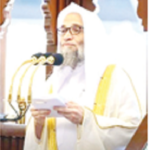IN the name of Allah, Most Gracious, Most Merciful.
The annual holy pilgrimage to Makkah and Madinah by Muslims worldwide has proved to be a consistent global event in the last 15 centuries. It has proved to be the largest world’s convention. It has proved to be the divine pilgrimage commanded on mankind. It has proved to be a great spiritual worship to crown the act of worship (ibadah) of Muslims globally. It has proved to be the greatest tourist event in the world. It has proved to host the world’s biggest commercial transactions where not less than $2 billion exchange hands. And it has proved to be the greatest world summit where issues of individual and collective interests are discussed in which the high, the medium and the low are involved.
But hajj has other multiplying benefits for the Muslims as individuals and as a group of faithful. It has spiritual merits, socio-economic, political and moral values from which we have a lot to learn. It has many purposes that are meant to teach us everlasting peace in Islam.
As a course of spiritual enrichment, hajj indicates a Muslim’s total submission to the will of Allah. It denotes the dedication of the faithful to their religion, involving personal, physical and financial burden. At no other place or on no other occasion in the life of a Muslim does he feel so intense and confident that he is approaching Allah, the Merciful. It is, in fact, impossible to convey the vividness of the experience and the sense of elation of the Muslim pilgrims during the experience of this divine presence and grace (though conducted in a massive manner). At Arafat, which is the culmination of hajj rites, a Muslim’s devotion reaches its peak. It is indeed the closest man can come to an encounter with God on earth.
That is why Muslims in all parts of the world are expected to submit totally to the worship of Allah on 9 Dhul-Hijjah, which is the Arafat Day. Most Muslims who do not perform hajj usually fast and pray fervently on this special day when the Almighty answers prayers. When Almighty Allah moves closer to mankind and takes pride in us against the angels who objected to our creation (Qur’an 2:30), when the Almighty is satisfied with our creation that we converge on Mount Arafat to obey His call. The Holy Qur’an, Baqarah, 2:30, says, “Behold! Thy Lord said to the angels: ‘I will create a vicegerent on earth’. They said, ‘Wilt thou place therein one who will make mischief therein and shed blood? Whilst we do celebrate Thy praises and glorify Thy holy (name)?’ He said: ‘I know what ye know not.’”
The eve of the Eid-I-Adha, Festival of Sacrifice, symbolises a meeting point where Adam and Eve met on Mountain Arafat. It signifies the meeting point for the children of Adam who are black, white, red, brown, young, old, man, woman, tall, short, rich, poor, powerful, weak… It manifests the answer to Adam’s prayer (Qur’an 2:38) for Allah’s forgiveness over his sin for eating the forbidden fruit (Qur’an 2:35; 7:19).
The Holy Qur’an, A’raf, 7:22-23, says, “So, by deceit he brought about their fall: when they tasted of the tree their shame became manifest to them and they began to sew together the leaves of the garden over their bodies. And their Lord called unto them: ‘Did I not forbid you that tree and tell you that Satan was an avowed enemy unto you?’ They said: ‘Our Lord! We have wronged our own souls. If Thou forgive us not and bestow not upon us Thy mercy we shall certainly be lost.’”
Hence, the continued answer to the prayer of the faithful on this day; the continued forgiveness of sins; the continued assemblage of the Muslims to reenact the meeting of mankind, a spiritual benefit.
Besides, hajj is the greatest regular conference of peace known in the history of mankind. In the course of hajj, peace is the dominant theme. It is peace with God and one’s soul, peace with insects and other creatures. To maintain the peace with one another and with animals, peace with birds, and even with insects and other creatures. To disturb the peace of anyone or any creature in any share or form is strictly prohibited as any killing, hurting is haram during hajj, especially in a state of ihram by the pilgrims.
The Holy Qur’an, Baqarah, 2:197, says, “For Hajj are the months well known. If anyone undertakes that duty therein let there be no obscenity nor wickedness nor wrangling in the Hajj. And whatever good ye do (be sure) God knoweth it. And take a provision (with you) for the journey but the best of provisions is right conduct. So fear Me o ye that are wise!”
Also, hajj is a wholesome demonstration of the universality of Islam and the brotherhood and equality of the Muslims. From all walks of life, from all shades and classes, and from every corner of the globe, the Muslims assemble at Makkah in response to the call of God. They dress in the same simple way, observe the same regulations, utter the same supplications at the same time in the same way, for the same end. There is no royalty, but loyalty of all to Allah. There is no aristocracy, but humility and devotion. Hajj is the unparalleled contribution of Islam to racial harmony and the brotherhood of the faithful. it is the inspiration of the believers into an unrivalled sense of solidarity, a feeling of identification in a world of alienation and the feeling of being part of the whole system of the cosmos.
May Almighty Allah accept the hajj of the Muslim pilgrims, Ameen.
WATCH TOP VIDEOS FROM NIGERIAN TRIBUNE TV
- Let’s Talk About SELF-AWARENESS
- Is Your Confidence Mistaken for Pride? Let’s talk about it
- Is Etiquette About Perfection…Or Just Not Being Rude?
- Top Psychologist Reveal 3 Signs You’re Struggling With Imposter Syndrome
- Do You Pick Up Work-Related Calls at Midnight or Never? Let’s Talk About Boundaries







